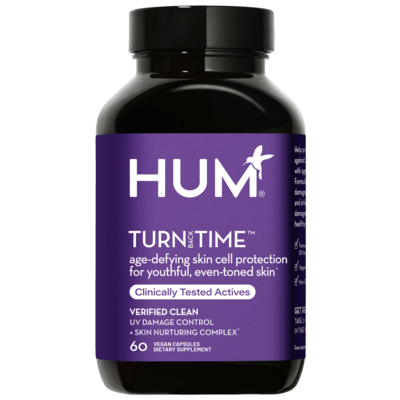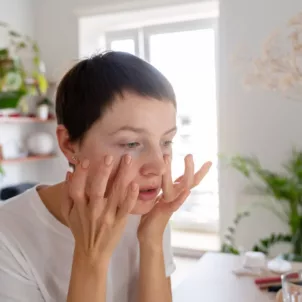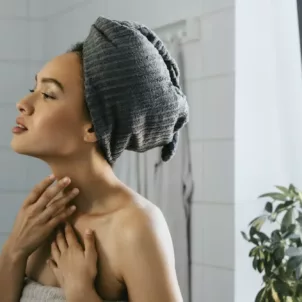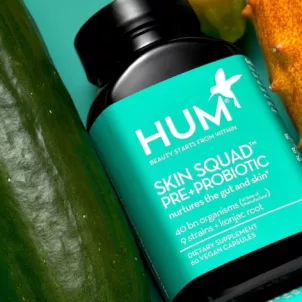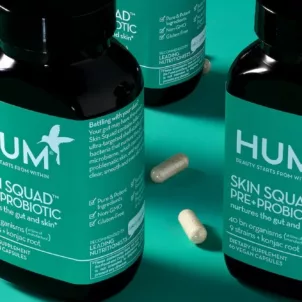Hyperpigmentation is something I’ve struggled with since childhood. My dark spots remind me of every scrap, accidental burn, and breakout I’ve ever had. I know I’m not alone, as hyperpigmentation is one of the most common skin issues among people of color.
Thanks to technology and research, there are new products and professional services to help get our skin back on track. To understand more about them and learn how to treat hyperpigmentation, I spoke with Sonia Barrow-Conerly, Regional Educator at Cosmedix, and Ursula Diaz, Co-Founder and CEO of Honor MD.

First, What is hyperpigmentation?
Hyperpigmentation—which is more common in women than in men—manifests in the form of dark spots due to the overproduction of melanin.What causes hyperpigmentation?
If you’re acne-prone, you’ve likely experienced dark spots left over from a breakout. But there’s a variety of culprits that can also cause hyperpigmentation. “Sun exposure, medications, and even perfumes can cause hyperpigmentation, especially for those with dark skin tones,” says Sonia. Changes in hormone levels can also lead to different types of hyperpigmentation such as melasma or pregnancy mask.
How to Treat Hyperpigmentation at home
Layer on Sunscreen
“Darker skin has built-in SPF, making it more difficult for UV rays to pass through,” Sonia says. However, UV exposure can cause cell damage to anyone’s skin.” So finding a daily sunscreen is a must for us all, especially if you want to treat or prevent hyperpigmentation. My brown-girl friendly go-to is Supergoop’s Unseen Sunscreen. The oil-free makeup primer has SPF 40 and won’t leave the skin covered in white residue.Exfoliate with an Enzyme Peel
Sonia recommends adding an enzyme peel like Cosmedix’s Pure Enzymes Cranberry Exfoliating Mask to your skin routine. “Enzymes are attracted to protein, aka what comprises dead facial skin,” she explains. “Enzymes ‘eat’ the build-up of dead protein like in a game of Pac-Man, leaving the skin with a brighter, more even tone.”Use Spot-Fighting Actives
As for daily topical treatments, L-ascorbic acid (vitamin C) and niacinamide come highly recommended. They even out skin tone, keep inflammation at under control, and protect the skin from free radicals—the last of which is especially important for those of us living in highly polluted cities. The two products that helped fade my own dark spots are Avya Skincare’s Anti-Aging Power Serum with Vitamin C and The Ordinary’s Niacinamide 10% + Zinc 1%. Additionally, Ursula recommends using physician-strength antioxidants, such as Honor MD’s Genetically Blessed Super Antioxidant Serum, that’ll exfoliate the skin to help treat and prevent hyperpigmentation. Finally, putting together a nighttime regimen that includes vitamin A is a game-changer. “Retinol works by going deep beneath your skin to even out tone and texture,” Sonia explains.Professional Hyperpigmentation treatments
Need to up-level the fight against hyperpigmentation? Sonia recommends laser therapy, which I’ve heard isn’t an option for those of us with darker skin. But Ursula sets the record straight: “Laser technology has come a long way over the last decade. Now, there are lasers that are safe on medium-to-dark skin that can effectively treat hyperpigmentation.” She recommends Clear + Brilliant in particular. “It’s not only effective and safe for all skin types, but also there’s little-to-no downtime. Skin will appear pink or red immediately after treatment, but you can easily cover it with makeup the following day,” Ursula says. “It’ll also feel rough to the touch for the next five-to-seven days, but it’ll have a radiance that’ll keep looking better as each day passes.” Ursula adds that everyone can see a difference following just one treatment. However, she notes that people who wish to treat discoloration will likely need three-to-six sessions to see significant improvement. Lastly, before starting any new treatment, Ursula suggests visiting a professional who has experience treating your skin tone. If you’re still not ready to commit fully, ask for a spot treatment in an inconspicuous place to see how your skin will react.More like this
